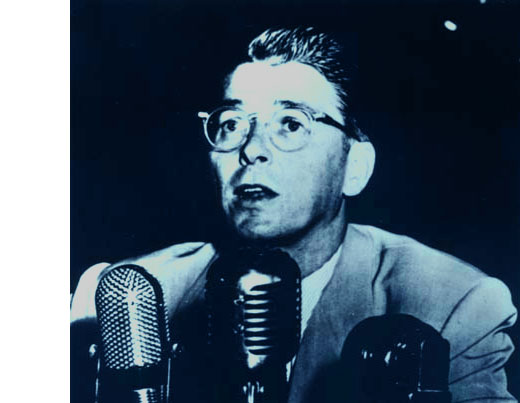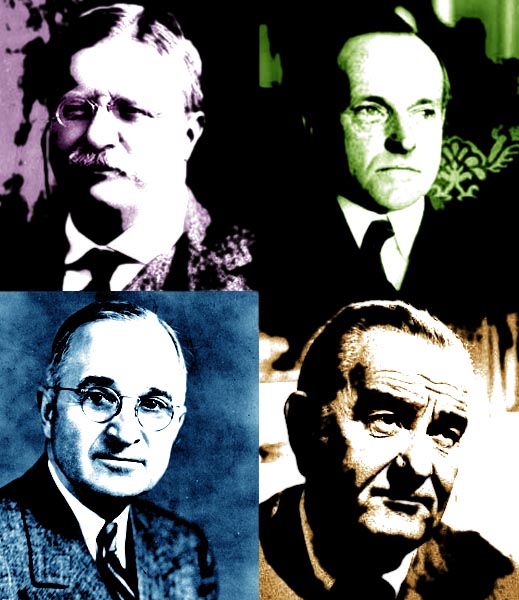Reagan Campaigns for Truman in 1948
 Wednesday, May 25, 2011 at 3:30PM
Wednesday, May 25, 2011 at 3:30PM 
In what might sound like political blasphemy by today's republican party standards, below is a campaign speech delivered by Ronald Reagan, for Harry S. Truman's reelection in 1948. It's well known that Reagan was a new deal democrat before he switched parties in 1962, claiming, "I didn't leave the Democratic Party. The party left me." However, it's still rather jarring to hear the future icon of conservatism espouse liberal ideals and deride the republicans -- some juicy quotes include:
"[I'm] more than a little impatient with those promises the Republicans made before they got control of congress a couple of years ago"
"This is why we must have new faces in congress in 1948 -- Democratic faces."
"Mayor Humphrey is one of the ablest men in public life"
Take a listen here:
Reagan's unlikely rise to political prominence is also parodied in the film Back to the Future, when Marty McFly is trying to convince "Doc" Emmett Brown that he's visiting from the future (the 1980's). The following is the conversation, per IMDB's quotes page:
[Dr. Emmett Brown is doubting Marty McFly's story about that he is from the future]
Dr. Emmett Brown: Then tell me, "Future Boy", who's President in the United States in 1985?
Marty McFly: Ronald Reagan.
Dr. Emmett Brown: Ronald Reagan? The actor?
[chuckles in disbelief]
Dr. Emmett Brown: Then who's VICE-President? Jerry Lewis?
[rushing out and down a hill toward his laboratory]
Dr. Emmett Brown: I suppose Jane Wyman is the First Lady!
Marty McFly: [following Doc] Whoa! Wait! Doc!
Dr. Emmett Brown: And Jack Benny is Secretary of the Treasury.
Marty McFly: [outside the lab door] Doc, you gotta listen to me.
Dr. Emmett Brown: [opens the door to the lab] I've had enough practical jokes for one evening. Good night, Future Boy!
[closes the door leaving Marty outside]
Jane Wyman was Ronald Reagan's first wife.


